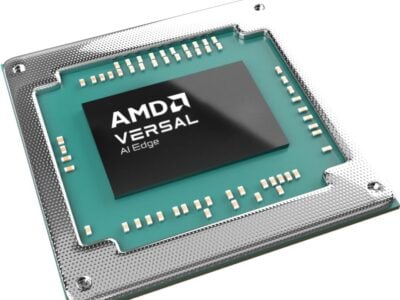
Europe to spend €1.75 bn for micro electronics research
The ruling means that public authorities will be able to provide up to €1.75 billion (about $2 billion) to support research and innovation. This is expected to unlock an additional €6 billion (about $7 billion) in private investment and the overall project is due to be completed by 2024.
More specifically, France has sought approval to provide funding of up to €355 million, Germany up to €820 million, Italy up to €524 million and the UK up to €48 million, under the scheme.
The IPCEI covers five technology areas: energy efficient ICs, power semiconductors, sensors, optical equipment and compound semiconductor materials. The companies and institutions set to benefit include: CEA-Leti, STMicroelectronics, Soitec, Bosch, Globalfoundries, X-Fab. The five sectors will cover 40 sub-projects across a total of 29 direct project members. As neither Belgium nor the Netherlands are part of the scheme NXP Semiconductors and research institute IMEC are not directly included but could take part in specific sub-projects.
No commentary is provided about what will happen to United Kingdom participants – including IQE, Newport Wafer Fab, SPTS Technologies – and monies, once the UK withdraws the European Union on March 29.
The EC adopted the framework of the IPCEI in 2014 as a means to protect the European Union and member states against charges of contravening World Trade Organization rules on state subsidies for industries. The IPCEI rules support investments for research, development and innovation and first industrial deployment on condition that the projects receiving this funding are highly innovative and do not cover mass production or commercial activities.
Next: Worked on in the wings
The IPCEI plan for microelectronics has been worked on in the wings for a few years and some monies have already been dispersed by Germany (see European chip project worth ‘billions’ is making progress).
Now the EC has formally agreed that a project jointly notified by France, Germany, Italy and the UK for research and innovation in microelectronics is in line with EU state aid rules and contributes to a common European interest.
It will be the member states that will provide in the coming years up to €1.75 billion in funding with the expectation that this will unlock an additional €6 billion (about $7 billion) in private investment. The project should be completed by 2024, with differing timelines for each sub-project.
Competition commissioner Margrethe Vestager, said: “Innovation in microelectronics can help the whole of Europe leap ahead in innovation. That’s why it makes sense for European governments to come together to support such important projects of common European interest, if the market alone would not take the risk. And it is why we have put special State aid rules in place to smooth the way. They enable risky and ground-breaking research and innovation to see the light of day, whilst ensuring that its benefits are shared widely and do not distort the level playing field in Europe. So that innovation supported by taxpayer money truly serves European citizens.”
Commissioner Mariya Gabriel, in charge of Digital Economy and Society said: “If we don’t want to depend on others for such essential technology, for example for security or performance reasons, we have to be able to design and produce them ourselves. Today’s decision is a result of enhanced cooperation and shared European vision.”
Despite a multi-year gestation the IPCEI was notified to the Commission on November 30. The projects overall objective is to develop innovative components and technologies for use in downstream applications such as home appliances automated vehicles, and commercial and industrial devices including the Internet of Things and autonomous vehicles.
This is the first integrated IPCEI in the field of research, development and innovation approved by the Commission since the adoption of the Communication in 2014.
Related links and articles:
News articles:
European chip project worth ‘billions’ is making progress
Leti, Fraunhofer join forces on “strategic” nanoelectronics
ST mulls building two 300mm fabs under IPCEI
Bosch to build new semiconductor fab in Dresden
EU funds Welsh compound semiconductor research
 If you enjoyed this article, you will like the following ones: don't miss them by subscribing to :
eeNews on Google News
If you enjoyed this article, you will like the following ones: don't miss them by subscribing to :
eeNews on Google News


